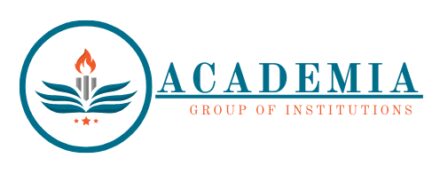Public Administration – UPSC CSE Mains Optional Syllabus 2023
September 4, 2023 2023-09-23 2:40Public Administration – UPSC CSE Mains Optional Syllabus 2023
Public Administration – UPSC CSE Mains Optional Syllabus 2023
“If we have shortcomings, we are not afraid to have them pointed out and criticized, because we serve the people. Anyone, no matter who, may point out our shortcomings.
― Mao Tse-tung
Public Administration Optional Syllabus
Paper I
Administration Theory
1. Introduction :
Meaning, scope and significance of Public Administration, Wilson’s vision of Public Administration, Evolution of the discipline and its present status. New Public Administration, Public Choice approach; Challenges of liberalisation, Privatisation, Globalisation; Good Governance: concept and application; New Public Management.
2. Administrative Thought :
Scientific Management and Scientific Management movement; Classical Theory; Weber’s bureaucratic model, its critique and post-Weberian Developments; Dynamic Administration (Mary Parker Follett); Human Relations School (Elton Mayo and others); Functions of the Executive (C.I. Barnard); Simon’s decision-making theory; Participative Management (R. Likert, C. Argyris, D. McGregor.)
3. Administrative Behaviour :
Process and techniques of decision-making; Communication; Morale; Motivation Theories content, process and contemporary; Theories of Leadership: Traditional and Modem.
4. Organisations :
Theories systems, contingency; Structure and forms: Ministries and Departments, Corporations, Companies; Boards and Commissions; Ad hoc, and advisory bodies; Headquarters and Field relationships; Regulatory Authorities; Public-Private Partnerships.
5. Accountability and Control :
Concepts of accountability and control; Legislative, Executive and judicial control over administration; Citizen and Administration; Role of media, interest groups, voluntary organizations; Civil society; Citizen’s Charters; Right to Information; Social audit.
6. Administrative Law :
Meaning, scope and significance; Dicey on Administrative law; Delegated legislation; Administrative Tribunals.
7. Comparative Public Administration :
Historical and sociological factors affecting administrative systems; Administration and politics in different countries; Current status of Comparative Public Administration; Ecology and administration; Riggsian models and their critique.
8. Development Dynamics :
Concept of development; Changing profile of development administration; ‘Anti-development thesis’; Bureaucracy and development; Strong state versus the market debate; Impact of liberalisation on administration in developing countries; Women and development the self-help group movement.
9. Personnel Administration :
Importance of human resource development; Recruitment, training, career advancement, position classification, discipline, performance appraisal, promotion, prayer and service conditions; employer-employee relations, grievance redressal mechanism; Code of conduct; Administrative ethics.
10. Public Policy :
Models of policy-making and their critique; Processes of conceptualisation, planning, implementation, monitoring, evaluation and review and their limitations; State theories and public policy formulation.
11. Techniques of Administrative Improvement :
Organisation and methods, Work study and work management; e-governance and information technology; Management aid tools like network analysis, MIS, PERT, CPM.
12. Financial Administration :
Monetary and fiscal policies: Public borrowings and public debt Budgets types and forms; Budgetary process; Financial accountability; Accounts and audit.
Paper II
Indian Administration
1. Evolution of Indian Administration :
Kautilya Arthashastra; Mughal administration; Legacy of British rule in politics and administration Indianization of Public services, revenue administration, district Administration, local self-government.
2. Philosophical and Constitutional framework of Government :
Salient features and value premises; Constitutionalism; Political culture; Bureaucracy and democracy; Bureaucracy and development.
3. Public Sector Undertakings :
Public sector in modern India; Forms of Public Sector Undertakings; Problems of autonomy, accountability and control; Impact of liberalisation and privatisation.
4. Union Government and Administration :
Executive, Parliament, Judiciary-structure, functions, work processes; Recent trends; Intra-governmental relations; Cabinet Secretariat; Prime Minister’s Office; Central Secretariat; Ministries and Departments; Boards; Commissions; Attached offices; Field organisations.
5. Plans and Priorities :
The machinery of planning; Role, composition and functions of the Planning Commission and the National Development Council; ‘Indicative’ planning; Process of plan formulation at Union and State levels; Constitutional Amendments (1992) and decentralised planning for economic development and social justice.
6. State Government and Administration :
Union-State administrative, legislative and financial relations; Role of the Finance Commission; Governor; Chief Minister; Council of Ministers; Chief Secretary; State Secretariat; Directorates.
7. District Administration since Independence :
The changing role of the Collector; Union-State-local relations; Imperatives of development management and law and order administration; District administration and democratic decentralisation.
8. Civil Services :
Constitutional position; Structure, recruitment, training and capacity building; Good governance initiatives; Code of conduct and discipline; Staff associations; Political rights; Grievance redressal mechanism; Civil service neutrality; Civil service activism.
9. Financial Management :
Budget as a political instrument; Parliamentary control of public expenditure; Role of finance ministry in monetary and fiscal area; Accounting techniques; Audit; Role of Controller General of Accounts and Comptroller and Auditor General of India.
10. Administrative Reforms since Independence :
Major concerns; Important Committees and Commissions; Reforms in financial management and human resource development; Problems of implementation.
11. Rural Development :
Institutions and agencies since Independence; Rural development programmes: foci and strategies; Decentralization and Panchayati Raj; 73rd Constitutional amendment.
12. Urban Local Government :
Municipal governance: main features, structures, finance and problem areas; 74th Constitutional Amendment; Global-local debate; New localism; Development dynamics, politics and administration with special reference to city management.
13. Law and Order Administration:
British legacy; National Police Commission; Investigative agencies; Role of Central and State Agencies including paramilitary forces in maintenance of law and order and countering insurgency and terrorism; Criminalisation of politics and administration; Police-public relations; Reforms in Police.
14. Significant issues in Indian Administration:
Values in public service; Regulatory Commissions; National Human Rights Commission; Problems of administration in coalition regimes; Citizen administration interface; Corruption and administration; Disaster management.






